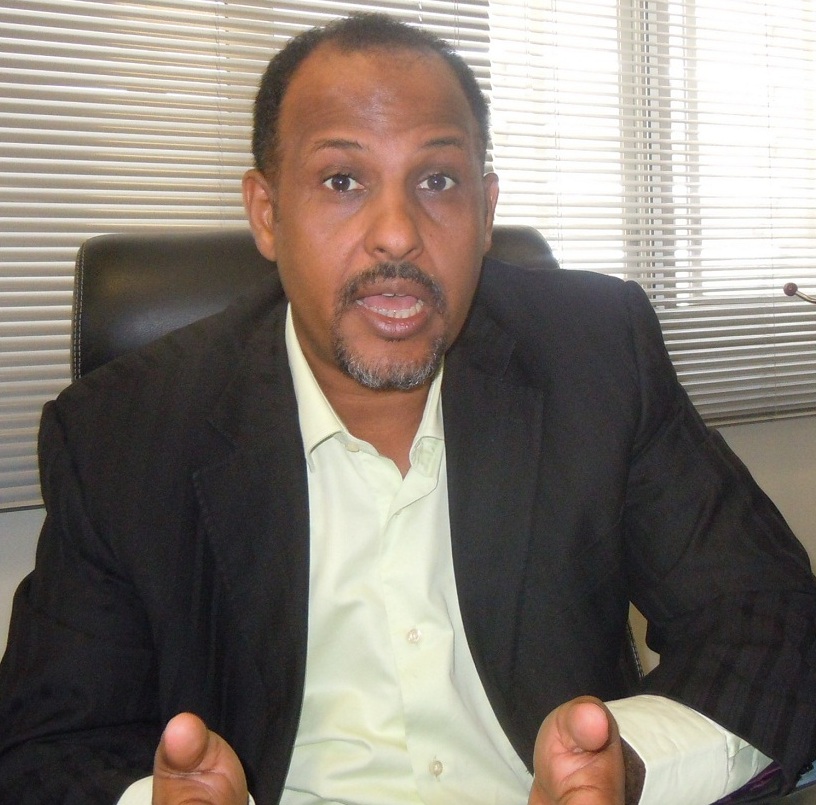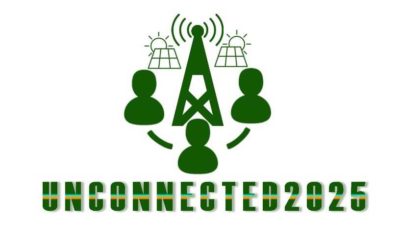

The IXPN was formally established in 2007, what have been the gains?
Exchanges are actually designed to reduce the cost for all the ISPs by localising their traffic. It makes internet cheaper. Now, the honest truth is that if you look at the Nigerian internet ecosystem, and why we have not made the impact that we were suppose to make; because when you look at it, even though we started operation long ago, the cost of the internet has not significantly dropped because of us. It has dropped because of the coming of submarine cables, especially in Lagos. But before I go into all that detail, let me quickly inform you that, we have increased in term of traffic from less than 1Megabyte to about 2 Gigabytes of traffic per second, which is huge. This is just to prove to you that we are growing and moving in the right direction, but not making the right impact. Why are we not making the right impact? The reasons are these, if you look at the internet ecosystem, as I mentioned earlier, especially in Nigeria, and you want to divide it into two; we have two kinds of the networks: we have what is called eyeball networks, these are networks that are carrying people that wants to browse; we also have the content network that carries the contents hosted where those people that are browsing on the eyeball network want to reach that content. The majority of the Nigerian networks fall under the eyeball network. If you look at all the big telcos, what content are they hosting? The content they are hosting is very negligible compared to the size and volume of people they are carrying that are trying to browse; millions of eyeball. No matter how interconnected the eyeball networks are without the content network, you won’t have traffic. And if the content is not local, what can they browse locally? So if you bring all the eyeball networks, that are carrying millions of people on their network, they might not exchange up to 10 megabytes of traffic because there is no content on that network. So, what we lack is content providers in Nigeria, the majority of these networks are not hosting contents locally. How many ISPs are into hosting of website and email? Very few compared to the ones that are providing internet services, because traditionally they just buy internet and sell internet, they are not into other value added services of hosting and streaming content. Eventually, things are changing. Right now, we can see the trend. Data centres are coming up, we can see very big companies investing good money into data centres.A lot of Nigerians are registering .ng, and some of them are trying to see how they can host it locally. With these changes in pattern, it therefore means we will now make the kind of impact that we are supposed to do. We are also attracting global players into the exchange, especially content providers; Google is part of the exchange and because of them, our traffic has increased significantly. We are trying to bring the likes of Microsoft and all the others to see the possibility of localising their traffic. And eventually the volume of traffic in Nigeria will grow and we will make that impact.
NCC has said they will license Infracos before the end of this year. When you look at the way the internet is distributed in Nigeria, you have the feeling that some part of the country is being marginalised. Do you think licensing Infracos will get internet to everyone’s doorstep?
NCC realizes that the distribution of the internet is the major challenges, and that is why they are coming up with the solution of the Infracos. The Infracos are supposed to cover the six geopolitical zones as well as consider Lagos as an entity because of the size. I think that will possibly get internet to the remotest part of Nigeria because they want to do it in such a way that they will concession some of it, they want to partner with state governments to give right of way at a cheaper rate. So, I believe that over time they will address the issue of internet distribution.
Has the establishment of the IXPN encouraged local contents, especially those that ride on mobile phones?
There is what we call the pyramidal requirements for hosting content everywhere in the world. The underlined infrastructure that is keystone to all this is electricity, you need the IT infrastructure, you need the telecom mast to get to the end users. By the time all that is sorted out, the second strata is you need to have wider interconnectivity, all over the place before you can host. It is like you are trying to run an industry, there has to be electricity before you put industry anywhere; there has to be availability to raw materials and road access for manufactured goods to be sold. If these things are not in place, it becomes difficult for any industry to be sited anywhere. Same thing applies to hosting, there are requirement that must be in place. Now, we have reached a maturity level where people come and do the hosting business; because the exchange is there to interconnect all the various telcos, it gives easy access to enter into the business. If you are a local content provider, all you need do is to tell the telcos to connect to the exchange, because when your service provider connect to the exchange, it means you can have access to all the ISPs that are local instead of you struggling to connect to each of them yourself. So, the existence of the IXPN has promoted the growth of local content and those values added service you are talking about.
Can we put a figure on what has been repatriated by ISPs and MNOs since the launch of the IXPN?
It is difficult to put a figure, but like I told you we are growing and things are improving. Right now, the volume of traffic that is exchanged, possibly we can say this is what the ISPs are paying, and this is what they would have paid if they have passed the same amount of traffic overseas. But putting a figure on it would be very difficult now.
From your own standpoint, what do you think Nigeria can do to make the internet as ubiquitous as the mobile phone?
The Infracos path the government is taking is very commendable, that will solve a lot of the challenges. What we want from our side is to have a fiber interconnectivity to connect all the various exchanges we have in Nigeria just the way Brazil, India and some other countries have done, so that government can subsidise the cost of exchanging the traffic. Maybe, someone from Enugu wants to browse the content of the University of Lagos, which is our customer; the government will pay for him to connect to that content, instead of going through an ISPs which is a bit expensive. Connecting through the exchange is cheaper and faster.
NIRA has been accused of not doing due diligence before selling the.ng domain name. As a director in NIRA, how will you react to that?
That is a false accusation, because to be honest with you anybody that is into domain business knows that it is an automated system where selling domain is 24/7. We have an automated platform where people can go and search for domains, because .ng is open to Nigerians and the rest of the world just like any other ccTLD in the world. You are here in Nigeria; you can register any country’s domain name. The majority of the country’s top level domains (ccTLDs) are selling their domain name globally, and we are doing the same thing. We are doing it 24/7, while we may be sleeping, someone who has woken up in America is buying the domain name because the system is automated, including the registrar’s interface. If you look at the registrars of NIRA, they are selling the domain in an automated way too. We can’t really know who you said you are, because you went through an automated system during the registration. We made it simple for people to register because the promotion of .ng is a promotion for Nigeria. Anyway, let me clarify here that even though we have an automated system yet we regularly scrutinize all registered domains for compliance, any domain that violates any of our policies is usually deleted after notifying the affected registrar and the registrant.
Is it true that the .ng domain name is the costliest in the world?
No! That is not true at all. There are other domain names like .de that are much more expensive than the .ng. We are not that expensive, how much are we selling the .ng domain name? Registrars buy from us and they sell a 3rd level domain for N1200-N3000 which is $7-$17. So how can we be the costliest in the world? We cannot control the price Registrars sell, but to be honest with you, you can buy .ng domain name for as low as $7.






























